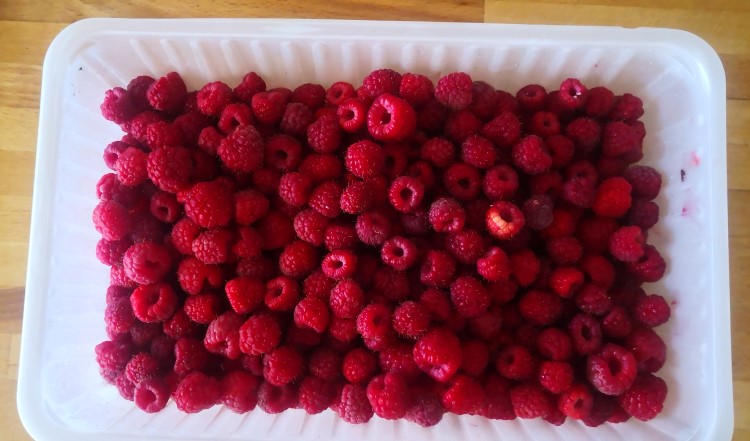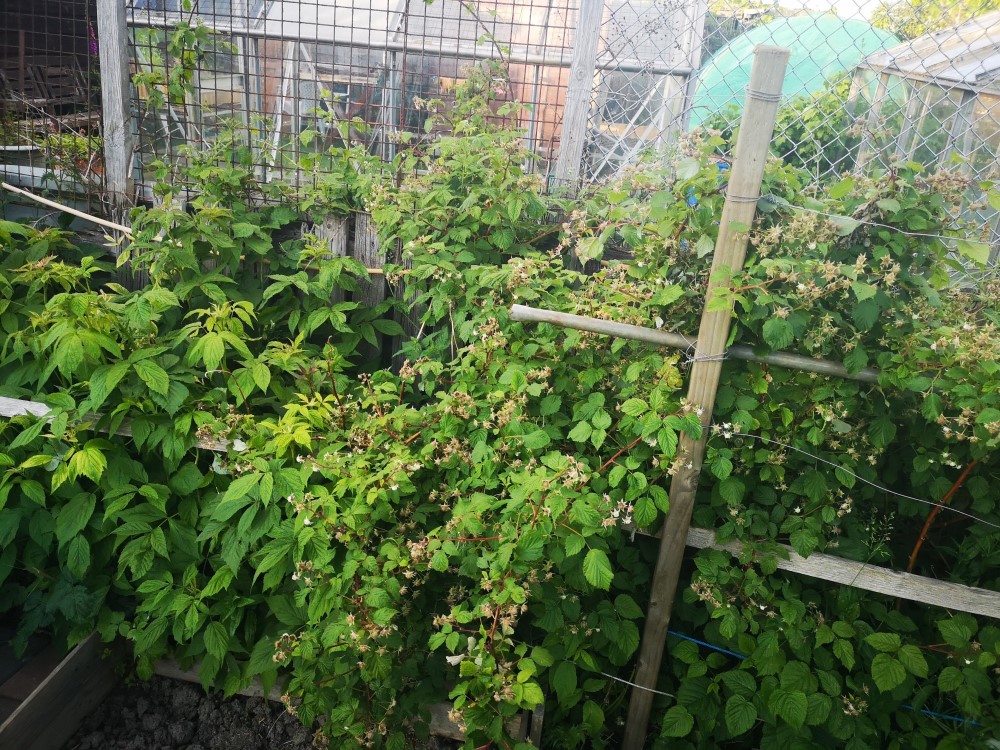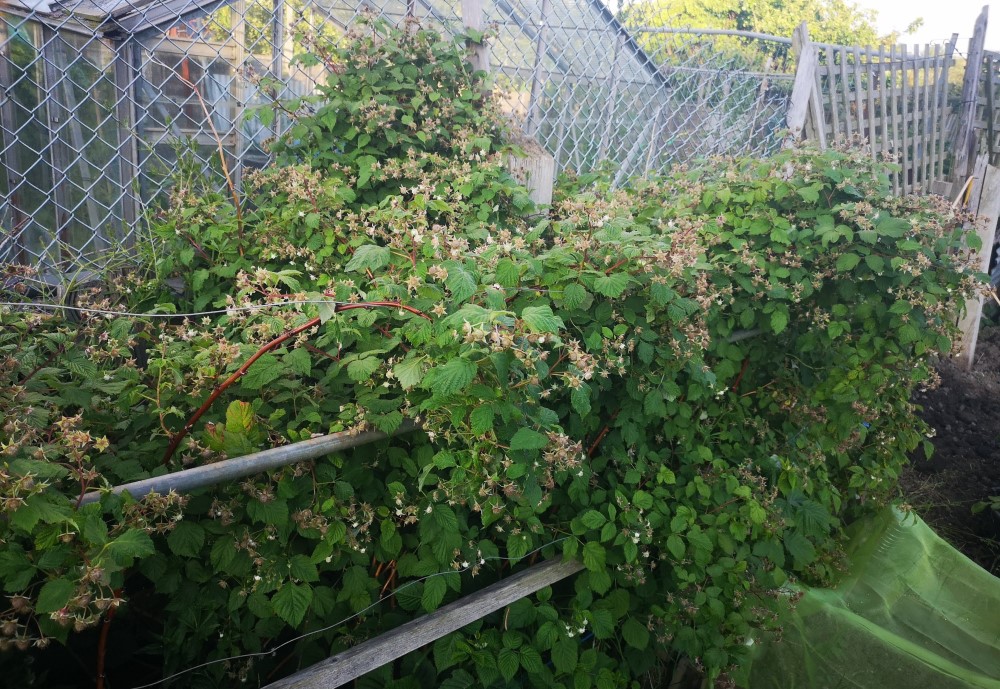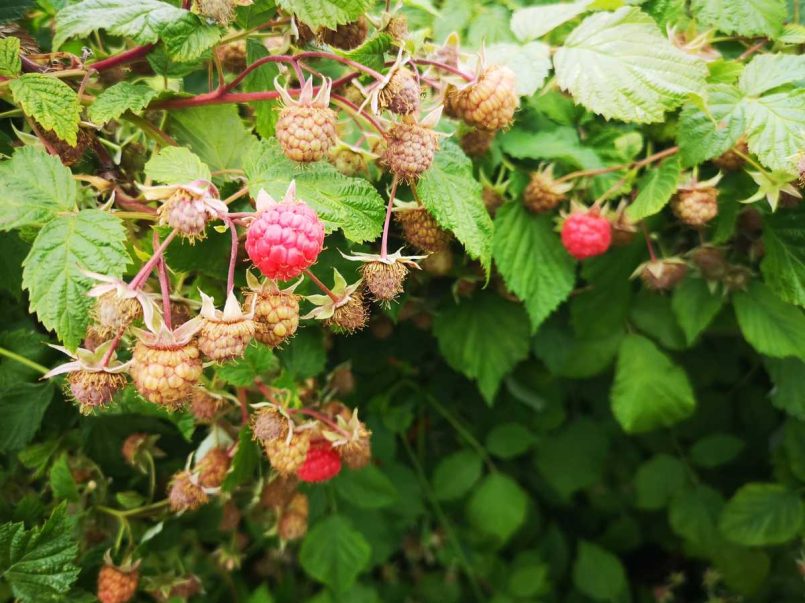Let’s get straight to the point – our favourite fruit to grow and eat is the delicious raspberry. Raspberry plants fall into two categories: summer-fruiting and autumn-fruiting. We have both types, but last year we discovered that you can prune autumn-fruiting plants so that they double crop (crop twice). Find out how you can get the same plant to produce raspberries in the summer and in the autumn, giving you a bumper double crop.
10 reasons to grow raspberries
- The plants are cheap and easy to buy, or you can get suckers (new plants sprouting from a main root bush) for free from someone.
- They just need a sunny spot, ideally with some shelter.
- It’s a low-maintenance plant.
- Our raspberries have never had problems with birds or pests.
- The bees love the flowers, which means more pollinators in your garden.
- It’s a nutrient-dense superfood, packed with many health benefits.
- You can freeze raspberries for long-term storage.
- Easy to harvest the fruit – just gently pull with no awkward bending or stooping.
- Healthy plants can last for years.
- Established autumn-fruiting plants can be pruned to produce a double bumper crop, meaning more fruit spread over a longer period.
Why raspberries are better than strawberries
You will see many UK gardeners growing strawberries. Yes, they are tasty but, in our experience, are likely to be eaten by birds and mice, take up more useable ground-growing space, produce less fruit per square metre and don’t freeze as well.

Raspberries for beginners
Summer-fruiting raspberries grow fruit on 1-year-old canes, so every February cut down to the ground any old canes that bore fruit last year and tie string support around the newer canes.
Autumn-fruiting raspberries (what we recommend) grow fruit on new canes, so cut all the canes to ground level every February.
Over winter, spread some organic material around the base, such as compost, horse manure or leafmould. If possible in February, give them a potash feed.
Double cropping raspberries (established plants only)
Last year we were disappointed with our autumn-fruiting raspberries because many of the new canes did not bear fruit at all, although they looked healthy. So instead, this year we have tried something different, and it is paying off – we decided to treat them like summer-fruiting varieties as follows:
- In February, cut down to the ground any canes that bore fruit last year (you can tell from the shrivelled up remains at the top of the canes). Leave the other canes standing – these will be the ‘summer canes’.
- Enjoy harvesting the fruit over summer from the summer canes. Meanwhile, the autumn canes are still growing.
- Once the summer fruiting has ceased, cut the summer canes down to the ground.
- Then enjoy harvesting more fruit over autumn taken from the ‘autumn canes’.
- In February, cut down to the ground the autumn canes (the ones showing signs of having borne fruit). Leave the other canes standing. If possible, give the ground a potash feed.
- This takes you back to step 2, continuing the cycle every year.

Success with our double cropping raspberries this year
We’ve never had so many flowers before. Take a look at the photo below. Flowers have quickly changed to fruit and in no time we will be harvesting them.

When we stood next to the raspberry plants as they were flowering, the loud hum of the bees was unbelievable – they loved our raspberry plants!
We will freeze most of the fruit for later use. Find out how to easily freeze raspberries.

